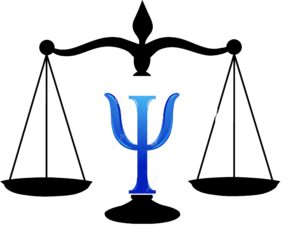Forensic Psychology


Forensic psychology represents the intersection between law and psychology. Psychologists are often called upon to render expert opinions needed for legal determinations. Psychological testing provides a level of objectivity and accuracy needed for fair legal decisions.
Legal areas in which psychologists may be called upon include:
Workers’ Compensation: When a worker is injured on the job, the employer is required to pay for the worker’s treatment, and provide compensation for any permament injury. Psychological assessment can be used to make determinations about emotional, mental, and psychiatric injury.
Disability: Insurance companies and Social Security provide payments to people who are too disabled to work. Psychological testing can provide an objective index of the presence and degree of psychological disablity, and can also be used to prove the legitimacy of a claim, or to demonstrate that the claimant is malingering.
Personal Injury: When an injury occurs outside of the workplace, such as injury due to a defective product or an auto accident, a legal action may be filed to determine liability for the injury and to collect damages. A psychologist may provide assessment of emotional damage. Brain damage may also be assessed, through the use of neuropsychological tests.
Criminal Law: Psychologists are used to evaluate criminal defendants in order to determine their competency to stand trial and to determine sanity as it relates to criminal responsibility.
Child Custody: When a married couple with children divorces, custody arrangements and determinations must be made. Often the couple is able to work out an agreement themselves. Sometimes they are able to do so with the additional help of mediation. However, when the couple is unable to agree, an expert, usually a psychologist, is called in to thoroughly evaluate the situation and to make recommendations to the court about custody. This evaluation looks at the capabilities of the parents and the needs of the children, and an arrangement is recommended which, ideally, makes the best use of each parent’s strengths. Psychological testing improves the objectivity of these evaluations, helps to look beyond the deception which often occurs in adversarial cases, and helps to elicit the children’s knowledge about which parent can best serve their needs without directly asking them to choose between parents.